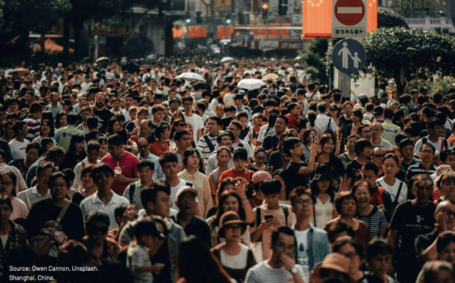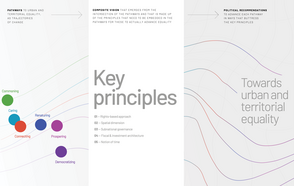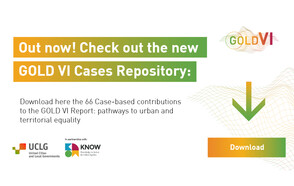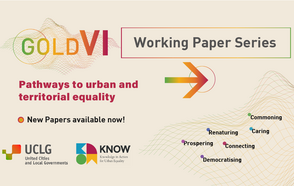
Launch of the UCLG GOLD VI Report proposes ways for local authorities to champion equality.
Local and regional governments are taking innovative steps to tackle growing inequalities around the world, according to the findings of a new report being launched today by United Cities and Local Government (UCLG), in partnership with The Bartlett Development Planning Unit (DPU) of University College London and the International Institute for Environment and Development (IIED), at the seventh UCLG World Summit and Congress in South Korea, the largest global gathering of local and regional government representatives.
The COVID-19 pandemic and climate emergency, coupled with rising food and fuel prices around the globe, is bringing inequalities into even sharper focus. While national governments may drag their feet on addressing such wide disparities, UCLG’s GOLD VI Report, Pathways to Urban and Territorial Equality: local and regional governments, civil society organisations and academia proposals to take equality forward documents hundreds of examples of cities, local and regional governments taking actions aimed at reducing inequalities in alliances with their local communities.
Examples include a micro health insurance programme in Malang, Indonesia, where people can access medical services by collecting garbage from the streets and using it as a currency to pay for insurance. In Dar es Salaam, Tanzania, the local government and utility company worked with an NGO and the local community to design a simplified sewage system which has reduced costs and provided funds for an additional 60 toilets. And in São Paulo, Brazil, the municipality recognised the value of cultural groups that had occupied vacant warehouses and developed a new legal framework to allow them to stay in the properties legally.
These examples are discussed as part of six pathways through which sub-national authorities can advance urban equality: Commoning, Caring, Connecting, Renaturing, Prospering and Democratizing. They are designed to tackle unequal access to housing and public services, the uneven distribution of care burdens, challenges related to sustainable transport and digital connectivity, to dignified livelihood opportunities, to climate change and to uneven political representation, among others.
Emilia Saiz, Secretary General of UCLG, said: “The report will play a fundamental role in making the commitments of The Pact for the Future of Humanity, adopted in the Congress, actionable, by promoting a radical revision of urban and territorial development strategies and policies to safeguard the future of people and the planet through better governance.”
Caren Levy, Professor at DPU said: “In the last few years, crisis after crisis has been felt around the globe, from a worldwide pandemic to rocketing food prices and the worsening climate crisis. It is the most vulnerable people, who were already facing multiple discriminations and struggling to survive, who have been hit hardest as a result.”
Alexandre Apsan Frediani, Principal Researcher at IIED, said: “Our report shows the important role cities, local governments and regional authorities can play in addressing growing inequalities, working together with civil society organisations and local communities, often through innovative, small but radically incremental steps.”
The recommendations of the report emerge from a three-year process of engagement and exchange, involving academics, civil society networks and local and regional government representatives in an unprecedented effort to both document and expand the central role of local and regional governments to address inequalities in alliance with their communities.
The key principles to do so identified in the report include respecting rights, managing urban space, devolving governance to the sub-national level, seeking adequate financing and, in many countries, revising current approaches to investment; and learning from the past to understand the present and plan to address inequalities in the future.
Jan van Zanen, UCLG Governing President, said: “In a world where complex emergencies and the management of overlapping crisis is part of our day to day work, tackling inequalities needs to be at the center of the renewed social contract that our Pact for the Future of Humanity is promoting, we are certain the findings of the GOLD VI Report will be a great source of inspiration”.













